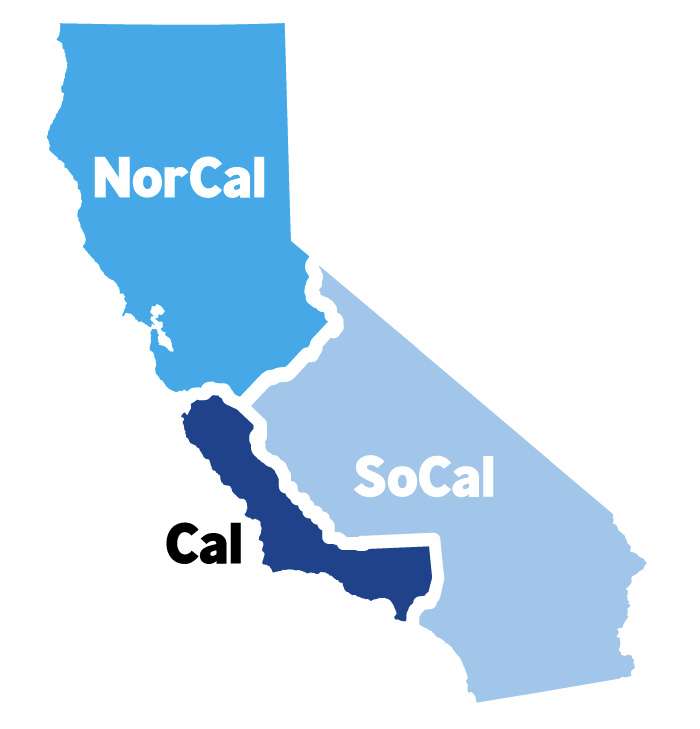The Volokh Conspiracy
Mostly law professors | Sometimes contrarian | Often libertarian | Always independent
California Supreme Court Removes Question on Splitting Up State from November Ballot
The initiative could be reinstated for the 2020 election, however, if the Court concludes that its inclusion does not violate California law.

Earlier today, the California Supreme Court ordered the removal of a referendum initiative from the state's November ballot, that would have allowed Californians to vote on breaking up the state into three parts. The court issued a unanimous order removing Proposition 9 from the ballot because "a substantial question has been raised regarding the proposition's validity and the 'hardships from permitting an invalid measure to remain on the ballot outweigh the harm potentially posed by delaying a proposition to a future election" (quotation marks omitted). The court will now consider challenges to the legality of the referendum question. If those challenges are rejected, it will return to the ballot in 2020. Even if it is put back on the ballot in 2020 and passes, Congress would have to agree before the plan to break up California into three states could go into effect.
Although I think the partition plan might well be a good idea, I don't have any strong view on whether Proposition 9 is a legally permissible use of California's initiative process. Perhaps the plaintiffs in this case are right to argue that breaking up the state amounts to a "revision" of the state Constitution, and not a mere "amendment," and therefore cannot be done by referendum. Even more plausible is the argument that the initiative must be structured as a constitutional amendment rather than a mere statute, as Proposition 9 is. A statutory initiative requires fewer signatures to get on the ballot than a constitutional one. It would, at the very least, be somewhat strange, if a state could be broken up through a statute alone, as opposed to an amendment (or a "revision") to the state constitution. But it is worth noting, as initiative sponsor Tim Draper does in his filing in this case, that California's current boundaries are themselves set by statute, rather than in the state constitution, and so perhaps can be amended by statute.
While the plaintiffs may well be right about the legality of Proposition 9, I am somewhat skeptical that the right way to deal with this question is to postpone any possible vote on the intiative, as opposed to considering the issue now, and then - if necessary - voiding the result of the vote in the event that the initiative is approved. If the people vote on an initiative that turns out to be unconstitutional, the only significant harm is likely to be a modest waste of time and resources (one that will be smaller still if the voters reject the initiative). If, on the other hand, the initiative was actually legal, postponing the vote on it for two years inflicts the considerably greater harm of forcing the vote to be held at a different time and under potentially very different circumstances. If it passes, implementation would be delayed by two years, which itself is a potentially significant harm.
The Court also had the option of simply deciding the case on the merits within the next few weeks, in time to remove the question from the ballot, if necessary, but also in time to keep it on, if its legality is upheld. This is, in fact what the plaintiffs challenging the initiative asked the justices to do, in a petition that notes the Court would have some five weeks to decide the case, before the August 13 deadline for sending November election materials to the printer. A month should be enough time to consider the legal issues involved. Both state and federal courts have decided comparable issues on an accelerated schedule in the past.
It is possible that I would reach a different conclusion if I studied California precedent on what qualifies as "harm" in this context, more closely. I certainly do not claim to be an expert on that subject. But, at this point, it seems to me that the court got this issue wrong. The potential harm of delaying a valid vote seems greater than any harm likely to come from holding an invalid one that courts would need to strike down after the fact, if it passes. Even more importantly, the Court likely had enough time to decide the case on the merits before the August 13 deadline, which would have avoided both the harm of postponing a vote on a valid initiative for two years, and that potentially created by passing an invalid one.
Be that as it may, Californians will not get to vote on partitioning the state until at least 2020, if ever.


Show Comments (39)